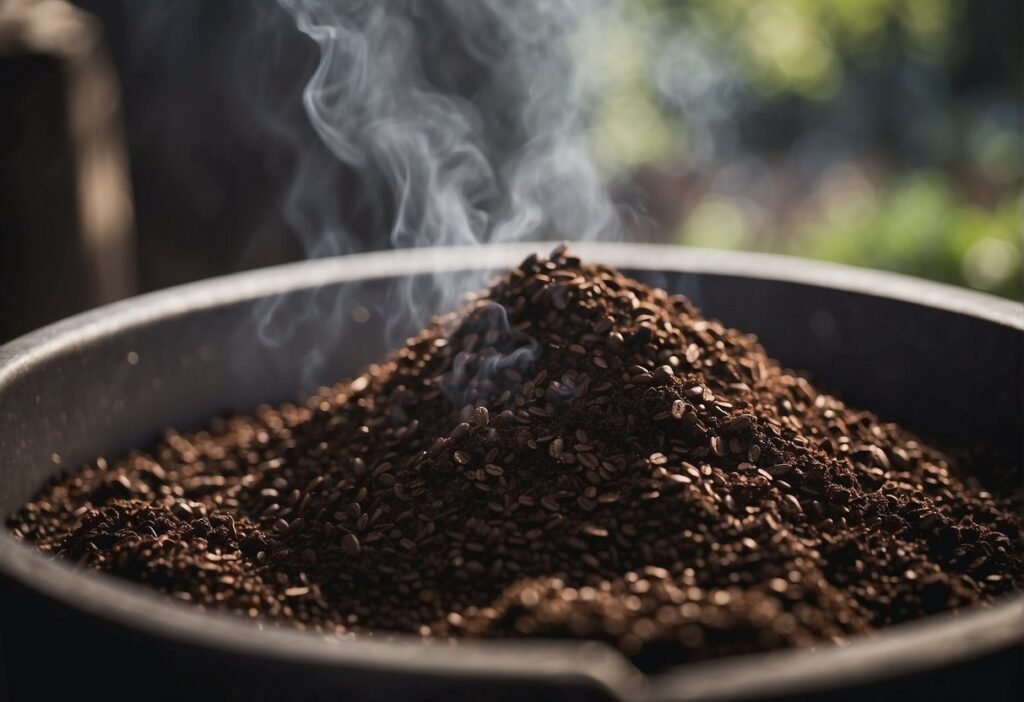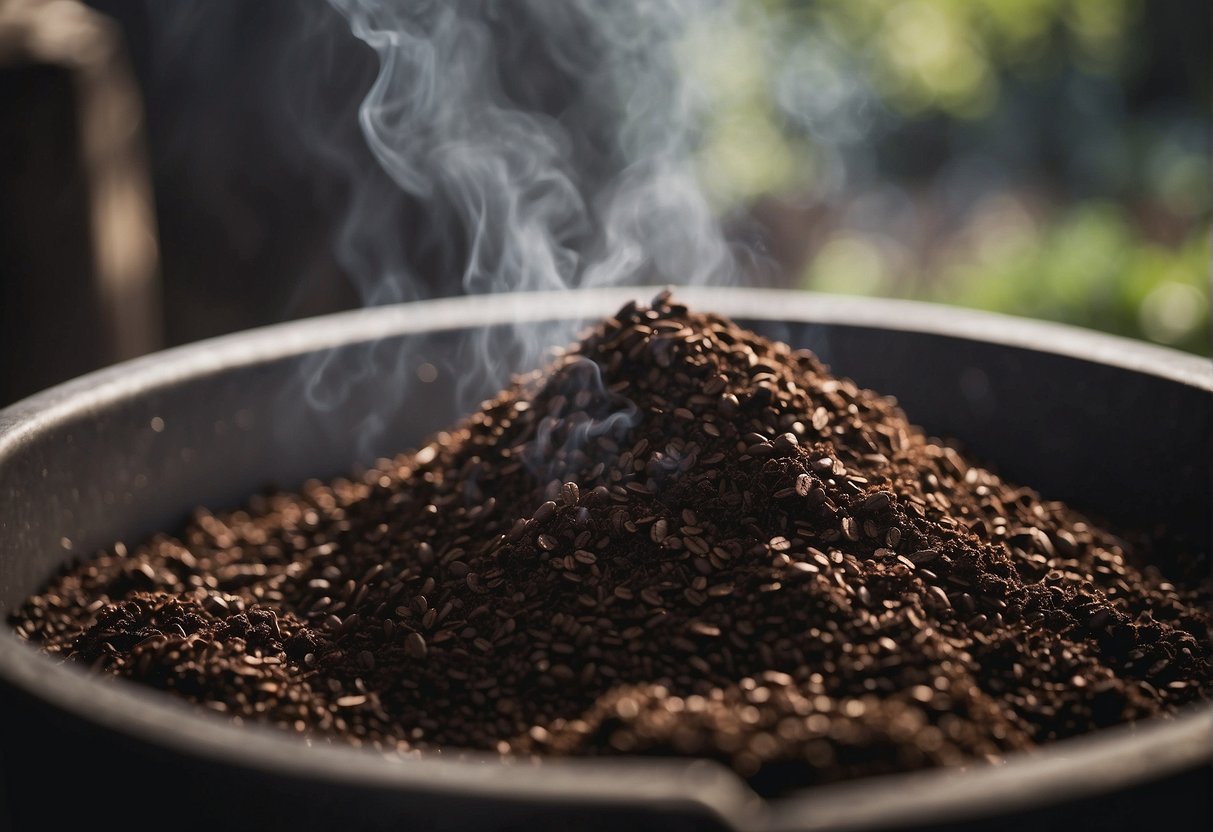
Can Coffee Grounds Go in Garbage Disposal? A Deep Dive into Disposal Dos and Don’ts
The morning ritual for many involves the comforting aroma and invigorating effects of a freshly brewed cup of coffee. But what happens after the caffeine kick? What about those used coffee grounds? A common question plagues kitchen dwellers: can coffee grounds go in garbage disposal units? The answer, as with many things, is nuanced. This article dives deep into the complexities of disposing of coffee grounds, exploring potential problems, best practices, and alternative solutions to ensure your kitchen plumbing stays in tip-top shape.
Understanding the Problem: Why Coffee Grounds Can Be Trouble
While seemingly innocuous, coffee grounds can pose several challenges to your garbage disposal and plumbing system. Their fine, abrasive texture is the primary culprit. When introduced into the disposal, these grounds can act like a fine sandpaper, slowly wearing away at the blades and internal components of the disposal unit. Over time, this can lead to reduced efficiency, increased noise, and ultimately, the need for costly repairs or replacements.
Furthermore, coffee grounds are not easily broken down by garbage disposals. They tend to clump together, forming a thick, pasty consistency. This can lead to clogs within the disposal itself, as well as further down the drainpipe. These clogs can restrict water flow, causing backups and unpleasant odors in your kitchen.
The density of coffee grounds also plays a role. They tend to settle at the bottom of pipes and disposal chambers, contributing to the formation of sludge. This sludge can harbor bacteria and contribute to the buildup of organic matter, leading to further plumbing issues.
The Impact of Coffee Grounds on Your Garbage Disposal
The implications of regularly disposing of coffee grounds in your garbage disposal extend beyond simple clogs. Here’s a more detailed look at the potential consequences:
- Clogging: As mentioned, the primary concern is clogging. The grounds bind together, forming dense masses that can obstruct the drainpipe.
- Reduced Efficiency: The abrasive nature of coffee grounds can dull the blades of your disposal, reducing its ability to grind food waste effectively.
- Drainage Issues: Even if the disposal itself isn’t clogged, the grounds can accumulate in the drainpipe, slowing down water flow and causing drainage problems.
- Odor Problems: The organic matter in coffee grounds can decompose, leading to unpleasant smells emanating from your drain.
- Increased Maintenance: Regularly dealing with clogs and reduced efficiency can lead to more frequent maintenance and potential repair costs.
The Verdict: Should You Put Coffee Grounds in the Garbage Disposal?
Given the potential drawbacks, the general recommendation is to avoid putting coffee grounds in your garbage disposal. While some disposals may handle small amounts occasionally, regular disposal is generally not advised. The risk of clogs, blade damage, and drainage issues outweighs the convenience.
Alternatives to Disposing of Coffee Grounds
Fortunately, there are several alternative methods for disposing of coffee grounds that are both environmentally friendly and beneficial for your home and garden. These alternatives offer a win-win scenario, allowing you to repurpose a waste product while avoiding potential plumbing problems. Here are some of the best options:
Composting
Composting is arguably the best way to dispose of coffee grounds. They are a valuable addition to any compost pile, providing essential nutrients for your plants. Coffee grounds are rich in nitrogen, which is a crucial element for plant growth. They also help improve the soil’s structure, aeration, and water retention. To compost coffee grounds, simply add them to your compost bin along with other organic materials like food scraps, leaves, and yard waste. Make sure to maintain a good balance of “green” (nitrogen-rich) and “brown” (carbon-rich) materials for optimal composting.
Gardening
Coffee grounds can be used directly in your garden to benefit your plants. They can be sprinkled around the base of plants as a mulch. This helps retain moisture, suppress weeds, and slowly release nutrients into the soil. Coffee grounds are particularly beneficial for acid-loving plants, such as roses, azaleas, and hydrangeas. They can also be mixed into the soil before planting to improve its fertility. However, be mindful of the amount you use, as excessive amounts can potentially acidify the soil too much.
Fertilizer
You can create a liquid fertilizer by soaking coffee grounds in water for a few days. This “coffee tea” can then be used to water your plants. This provides a gentle and effective way to deliver nutrients to your plants without the risk of over-fertilizing. The liquid fertilizer is also easy to apply and can be used on both indoor and outdoor plants.
Odor Control
Coffee grounds can be used to absorb odors in your home. Place a small bowl of dried coffee grounds in your refrigerator or freezer to neutralize unwanted smells. They can also be used to freshen up your garbage disposal. Simply grind a small amount of coffee grounds in the disposal, followed by cold water, to help remove odors and keep the unit clean. However, remember that this is not a primary disposal method and should be done sparingly.
Other Uses
Beyond gardening and odor control, coffee grounds have a variety of other uses. They can be used as a natural abrasive cleaner for pots and pans, a gentle exfoliant in homemade skincare products, and even as a pest repellent. [See also: Creative Uses for Coffee Grounds]
How to Properly Dispose of Coffee Grounds
If you do choose to dispose of coffee grounds in your garbage disposal (and it is generally not recommended), there are a few steps you can take to minimize the risk of problems:
- Use Cold Water: Always run cold water while grinding coffee grounds. This helps solidify the grounds and prevents them from sticking to the blades and pipes.
- Grind in Small Batches: Avoid overloading the disposal with large amounts of coffee grounds at once. Grind them in small, manageable batches.
- Follow with Plenty of Water: After grinding, run the disposal and cold water for at least 30 seconds to ensure all the grounds are flushed through the system.
- Avoid Other Food Waste: Do not grind coffee grounds with other food waste, especially fibrous materials like celery or corn husks, as this can increase the risk of clogging.
- Regular Maintenance: Regularly clean your garbage disposal to prevent the buildup of coffee grounds and other debris.
Troubleshooting Common Problems
Despite your best efforts, problems can still arise. Here are some common issues related to disposing of coffee grounds and how to address them:
- Clogged Disposal: If your disposal is clogged, try running hot water and dish soap through the disposal. You can also use a plunger to dislodge the clog. If these methods don’t work, you may need to call a plumber.
- Slow Drains: If your drain is draining slowly, it could be due to a buildup of coffee grounds in the pipes. Try using a drain cleaner designed for organic matter. If that doesn’t help, a plumber can use a snake to clear the blockage.
- Foul Odors: If your disposal smells bad, grind some lemon or orange peels with ice to help neutralize the odor. You can also use a commercial garbage disposal cleaner.
- Blade Damage: If your disposal blades are dull or damaged, you may need to have them sharpened or replaced.
The Bottom Line: Coffee Grounds and Your Garbage Disposal
The question of can coffee grounds go in garbage disposal is a complex one. While technically possible, the potential for clogs, damage, and other plumbing issues makes it generally inadvisable. The best approach is to avoid putting coffee grounds in your disposal altogether and to explore the many alternative disposal methods, such as composting and gardening. By adopting these practices, you can protect your plumbing, reduce waste, and even enhance your garden. [See also: Eco-Friendly Kitchen Practices]
Ultimately, the decision of whether or not to put coffee grounds in your garbage disposal is yours. However, understanding the potential risks and benefits will enable you to make an informed choice that best suits your needs and priorities. Consider the alternatives, prioritize the health of your plumbing, and embrace sustainable practices for a cleaner, greener kitchen.


